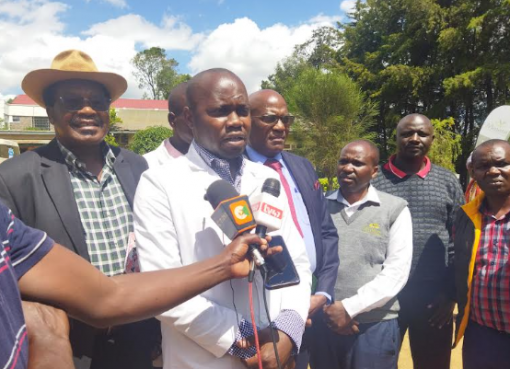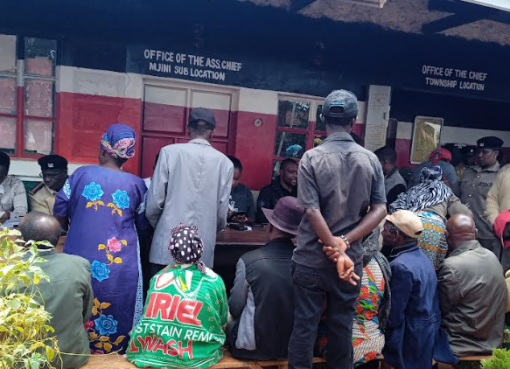The Wambugu Apple variety cultivation has been introduced in Kangema Constituency to boost the local economy and contribute to sustainable agriculture.
The initiative will not only contribute to environmental conservation by supporting the government’s goal of increasing the forest cover through planting 15.9 billion trees by 2032 but will also open up the area economically especially with the completion of the MauMau roads.
Known for its versatility and robust nature, the Wambugu apple, while rich in nutritional value, cuts down on the need for excessive use of pesticides and synthetic fertilizers.
Speaking during the apples planting and training exercise for teachers and parents of Grade 7 and 8 pupils at Mukarara Primary school, Kangema Member of Parliament, Peter Kihungi, observed that the initiative was a step towards a greener, more food secure and an economically empowered society.
During the exercise, participants from eleven schools received seedlings to plant on their farms and in the school gardens for their nurturing, further harnessing their skills in competency-based curriculum (CBC).
“Through our NG-CDF we have an environmental kitty where last year we planted avocado trees in our 10 schools, but this year we have considered the Wambugu apple species which is doing well in this climatic condition and we have done that in 11 schools,” he revealed.
“Using our schools as a demo will encourage the farmers around the selected schools to venture into apple farming which will in turn improve the economy of this area through an empowered society,” he said.
He noted that the Wambugu farm had also entered into an agreement with the Constituency in their value addition process and thus will also buy the fruits from the farmers at Sh300 per kilo.
“With the completion of the MauMau road which will connect the Rift Valley with Central Region, we are confident that the increased traffic will consequently boost our economy as our area will be known for producing this type of apple which has not gained much popularity,” noted the MP.
Ruth Nyambura Maina, the head teacher of Mukarara Primary school, noted that the fruit will be beneficial to the pupils due to its high nutritional value.
“The fruits will be valuable to our learners and we are happy that our school has been selected as a beneficiary,” she noted adding that, “this is a resource and in future we will be able to sell the surplus and meet some of the institution’s needs.”
Peter Wambugu, the brains behind the versatile Wambugu apple noted that the fruit known for its exceptional taste, is adaptable to different climates and can be grown by both small-scale and commercial farmers as it is not labor intensive.
“I combined characteristics of several apple species to come up with this hybrid Wambugu apple through a series of trials in 2001 and I encourage farmers to embrace apple farming to be economically empowered even in generations to come,” he said.
The high yielding fruit’s first harvest is witnessed on the 9th month after planting and subsequently bears fruits three seasons in a year with a tree producing between 300-400 fruits yearly.
The Wambugu apple does well in all types of soil, well drained with a soil pH of between 6.0 to 7.0.
“Planting holes should measure 2ft by 2ft by 2ft with a spacing of 7ft by 7ft, then mix one bucket of well decomposed compost manure with the top soil before carefully planting the seedling” he said.
In addition, the fruit should be watered twice a week for root establishment, notably mature trees can handle less frequent watering.
Farmers should also focus on removing dead or diseased branches, as well as crossing branches that can cause damage or obstruct light.
Moreover, thinning cuts, which remove entire branches at the point of origin, help improve air circulation.
At 4ft, heading cuts, which trim the ends of branches, encourage branching and fruiting of the Wambugu apple.
By Florence Kinyua





